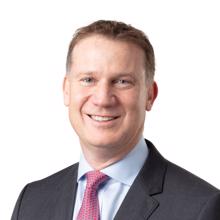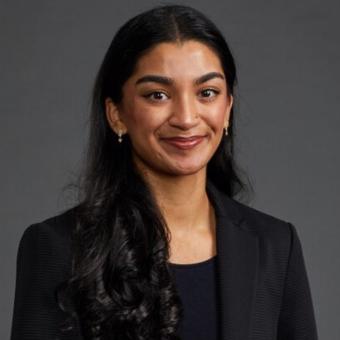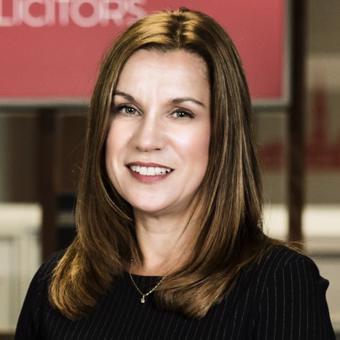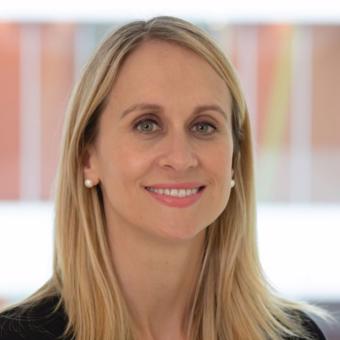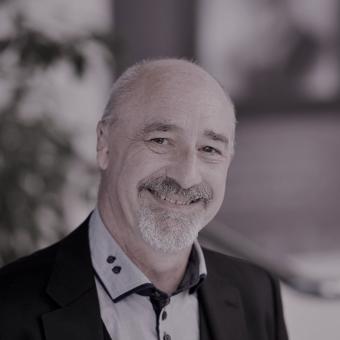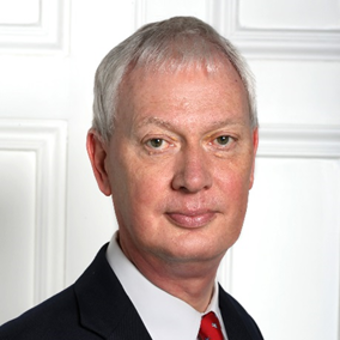Jersey-based Jason Romer is group managing partner at a leading offshore law firm. He tells The Brief about accessing high quality work, the possibility of working for an offshore firm while living onshore, being a “political hot potato” and creating “an environment where brilliant people are proud to work.”
Collas Crill is an offshore law firm with operations in Jersey, Guernsey, the Cayman Islands, the British Virgin Islands and London. As group managing partner, Jason Romer, who is based at the firm’s office in St Helier, Jersey, has overseen revenue growth of more than 12 per cent per year over the past decade.
The firm Romer joined in 2005, and of which he became managing partner in 2010, was called Collas Day and was based purely in Guernsey. In 2011 he oversaw a merger with the Jersey firm Crill Canavan, giving the business its current name.
In 2015 a merger with the Cayman firm CARD saw the business extend its reach to the Caribbean. This deal was followed in 2017 by a merger with BVI-based Farara Kerins.
Today the firm employs 270 people, including 38 partners. In 2018 it was identified by The Lawyer as one of the ten largest offshore firms in the world. The magazine described the firm’s trajectory as “a remarkable growth story”.
A proper job
Romer’s career began conventionally enough. Having achieved a triple first in Geography at Cambridge he was faced with a choice between embarking on a PhD or pursuing a career in the law.
He made his decision, he says, following a conversation with his grandfather, who told him to “stop mucking about costing your parents money, and go and get yourself a proper job.” So, off he went to Linklaters in 1998, where he qualified and spent five years in total.
While at Linklaters he was seconded to the Department of Trade and Industry (as the Department for Business, Energy & Industrial Strategy was then known), where he was involved in the legislation that established the communications regulator Ofcom. Building on this experience, he decided to move in-house and, in 2003, took up a role as legal and regulatory director at Cable & Wireless in Guernsey.
“They had just bought Guernsey Telecoms, and I was doing all sorts of interesting things,” Romer says. “It was a relatively small business for Cable & Wireless, so I had access to a lot of interesting stuff – political, economic, legal and sitting on the board – at an early stage in my career.”
After two-and-a-half years at Cable & Wireless, Romer returned to private practice, joining Collas Day in 2005. In 2007 he became a partner at the firm, and the rest is history.
Offshore versus onshore
As an offshore firm, while it does work directly with some end clients, Collas Crill is largely a service provider to other, onshore, law firms and professional services firms.
Like other offshore firms, Collas Crill’s practice areas include corporate, private client, real estate and litigation. Romer identifies private client, which tends to focus on trust and foundation work, and litigation – primarily trust litigation and insolvency – as the firm’s “towering strength”.
At a day-to-day level, he says, working for an offshore firm doesn’t differ much from working for an onshore one. However, he points out that despite offshore firms like Collas Crill being smaller than onshore firms of similar standing, they have to be able to accommodate, and manage, the different cultural imperatives that come from operating in a range of different jurisdictions.
“If you had a 270-person firm in Leeds, for example, then you would just be dealing with Leeds – and even if you also had offices in Manchester and Birmingham, that probably wouldn’t be too tricky. The complexity of the business that we’re dealing with is probably higher, and the complexity of the cultural issues that we’re dealing with, the integration issues that we’re dealing with, I think are more difficult,” he says.
Business development and marketing are also different, he continues: “I think the days of offshore being the domain of the average dentist or doctor wanting an offshore trust for their family are over, it’s not the right place for them anymore. This is not about wealth in the UK.
“A lot of our work now is done with the Middle East, South America or the Far East. The advisers might be in the UK, but increasingly the actual underlying clients are not UK-based.
“So that means not only do we want to be marketing to the UK and London professionals, we’re also out marketing in the Middle East, the Far East and South America.”
Onshore opportunities
Collas Crill has an office in London and, Romer says, it is entirely possible to work for an offshore firm while living in the UK. House prices in the Channel Islands achieve the rare feat of making much of the UK look affordable so, he says, “Increasingly, I think, businesses will be looking to how they can access the talent that exists in the UK from offshore.
“Covid has taught us that we can be much more flexible in terms of where people are based and how they work, and what they do.”
But, without the benefits of the Channel Islands lifestyle, what is there to attract an onshore-domiciled lawyer to work for an offshore firm?
“Partly it’s not working for a corporate machine,” Romer says. “But, despite being an, inverted-commas, smaller firm, we’re accessing a really, really high quality of work.
“When they come to work for us, people are always astounded at the quality of work they get involved in, and the quality of life that they can achieve while doing it.”
Quality of life isn’t just about seafood restaurants and beaches, he continues. He gives the example of working with a major international firm on the Guernsey aspects of a stock market listing where, although he “worked a hard day” dealing with very high-level matters, the pressures and hours worked were nothing like those faced by the lawyers at the onshore firm leading the transaction.
Political hot potato
Whenever government finances come under scrutiny, calls erupt for the Treasury to “clamp down on” offshore jurisdictions. Does this mean firms like Collas Crill are permanently operating with a Sword of Damocles suspended over them?
“It’s of no political damage for people to say they are going to clamp down on offshore centres,” Romer says. “However, when they get into government and realise the financial benefits, particularly to the City of London, that offshore jurisdictions bring, and they realise the value of people’s pensions invested offshore, they realise it would be a catastrophic thing to do.
“And it’s interesting if you look at President Macron in France – he’s very, very anti the Channel Islands but he’s very, very pro-Luxembourg. Ultimately, everybody wants to be able to facilitate their own financial onshore centre through the use of tax-efficient mechanisms for investing or bringing people’s money together.
“And if you clamp down on the Channel Islands that wealth will move to Luxembourg, or Dubai, or currently most likely Singapore. It really depends, politically, do we want London and our jurisdictions to be favourable financial centres?”
Selfless collaboration
Romer talks emphatically about fostering “an environment where brilliant people are proud to work.”
“I think it’s a pretty soul-destroying existence if you perceive that your only function in life is to come in and record eleven hours a day,” he continues. “That strikes me as being very uninspiring, so we spent a lot of time looking at our purpose back in 2018.”
Collas Crill, he says, has a long history of supporting charitable projects in the communities in which it operates, and has recently launched an app that connects its staff with volunteering opportunities. However, for Romer, “purpose” is primarily about culture and the way colleagues work with, and support, one another.
He says, “The key emphasis that came out of our work in 2018 was building relationships through selfless collaboration. When people join the firm I spend an hour or two talking about purpose, talking about the culture of the firm.
“And I say to them, ‘One way or the other you’re going to leave the firm eventually, but I hope you will have built fantastic relationships within the firm, with your clients, with suppliers that you have worked with.’”
The phrase “selfless collaboration”, he admits, initially received a degree of pushback from the firm’s partners who, he recalls, told him, “Lawyers aren’t selfless.” However, he responded by showing them a video clip of the Portland Trailblazers coach Maurice Cheeks helping 13-year-old Natalie Gilbert, who faltered early in her performance, to complete her rendition of the US national anthem at the beginning of a 2003 NBA playoff.
Romer says, “He just puts his arm around her, and supports her and coaches her in how to get back to singing this song. He’s a rubbish singer, and she’s a brilliant singer, so I say to people when they join that, ‘Your job is difficult, and you are going to encounter times when you screw up, or you get things wrong.
“‘Always, always put your hand up and look around for help’. I also say to people, ‘You will see people struggling, and I really want you to be that person who steps in and helps.’
“That’s the example that I give. If we can live and breathe that almost every day of our existence at the firm, we will create an environment where brilliant people are proud to work.”
Visit
- Connect with Jason Romer via LinkedIn
